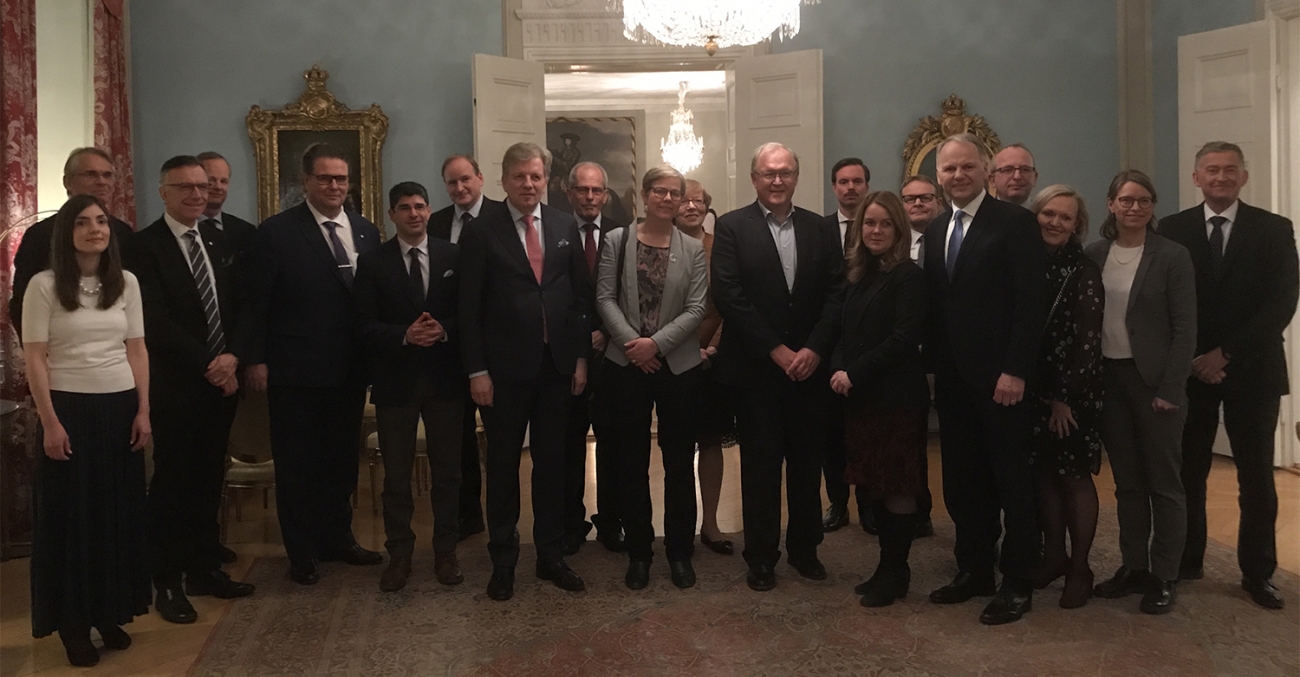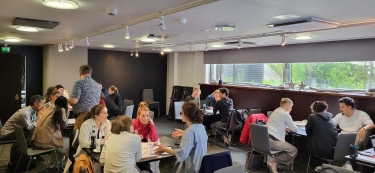EFI facilitates high-level Green Deal discussions
The Swedish Embassy in Helsinki together with EFI organised a discussion dinner on 12 February on the European Green Deal and the future of forest policy in the EU. The event was hosted by Ambassador Anders Ahnlid.
Participants included the former Prime Ministers Esko Aho from Finland and Göran Persson from Sweden, Jennie Nilsson the Swedish Minister of Rural Affairs, Jari Leppä the Finnish Minister of Agriculture and Forestry, Krista Mikkonen the Finnish Minister of Environment and representatives from Finnish and Swedish forest sector stakeholders. EFI participants included Director Marc Palahí, and Assistant Director Lauri Hetemäki.
The event was opened by Ambassador Anders Ahnlid, who spoke about the importance of Finnish-Swedish cooperation on forest issues. This was followed by comments from Marc Palahí and a presentation by Lauri Hetemäki on the Green Deal proposal. The EFI speakers stressed the importance of the Green Deal helping to pave the way to a carbon neutral and sustainable EU. However, based on the messages from the science-policy reports that EFI has published over the past six years, the Green Deal was seen to have a too narrow view of the potential of the EU forest sector to contribute to climate mitigation, biodiversity, and economic and social sustainability. The missing link in the Green Deal was stated to be the forest bioeconomy, which is essential for phasing out fossil-based economic activities. Moreover, the synergies and links between bioeconomy, biodiversity and climate mitigation and adaptation needs to be better acknowledged and utilized for reaching the Green Deal objectives.
It was also noted that the forest-based sector is not mentioned at all in the Green Deal proposal. Yet it provides more jobs than the steel, chemicals and cement industry together - the importance of which are stressed by the Green Deal - and engages 16 million forest owners. From economic and social objectives and for creating ownership for the Green Deal, it would be vital to acknowledge the role of the forest-based sector.
In the discussions the participants stressed the importance of the Green Deal, but also the necessity of developing it still further to take advantage of the EU forest sector’s contribution to all sustainability dimensions: ecological, economic and social. Finland and Sweden as the key EU forest countries should take the lead to engage other EU countries and advance this holistic sustainability perspective, and help to strengthen the Green Deal. The more ownership is created behind the Green Deal, the more effective it will be.
The discussion also acknowledged the need to develop a science-informed narrative on forest-based circular bioeconomy, to engage the support of politicians and citizens.
EFI will continue to facilitate more discussions on these themes. The Green Deal and forest policy will be further discussed on 18 March in the ThinkForest event in Brussels, where the new EFI study on “European Forest Governance post-2020” will also be launched.



